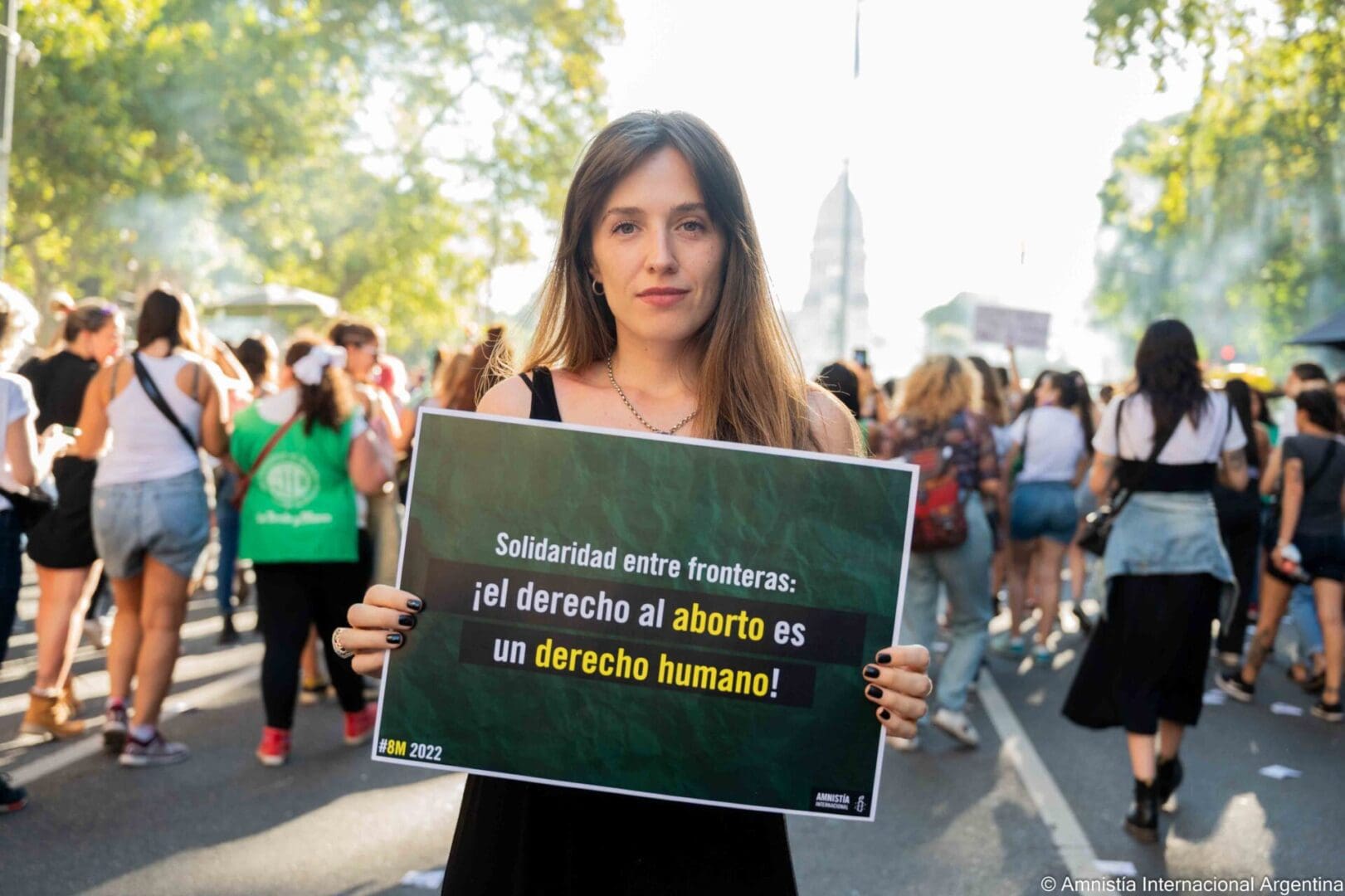

An abortion is a medical procedure that ends a pregnancy. It is a basic healthcare need for millions of women, girls and people who can become pregnant. Worldwide, an estimated 1 in 4 pregnancies end in an abortion every year.
But while the need for abortion is common, access to safe and legal abortion services is far from guaranteed for those who need abortion services. An estimated 25 million unsafe abortions take place each year that can result in preventable deaths and injuries.
Laws and policies that affect the lives of all persons who can become pregnant must ensure access to abortion and full bodily autonomy. Laws restricting access to safe abortion violate the human rights of women and people who can get pregnant. Those who are already marginalized are disproportionately affected by such laws. They include people on fixed or lower incomes; refugees and migrants; adolescents; lesbian and bisexual women and girls; transgender and gender non-conforming individuals; minority or Indigenous women.
Laws and policies that ensure access to abortion must be passed in order to ensure social, economic, gender, and reproductive justice for women, girls, and people who can become pregnant.
The right to privacy entails an individual’s decision to pursue a voluntary termination of pregnancy and must be protected by the State and from third-party interference. While states can regulate abortion, they must ensure that these restrictions do not endanger people’s lives and “subject them to physical or mental pain.”
Protection from arbitrary and unjust detention and unjust state interfere with individuals’ lives, including with regard to decisions around pregnancy and family life. Criminal abortion laws instill fear around seeking an abortion and emergency services for pregnancy-related complications, including those due to miscarriages, due to fear of imprisonment. Criminalization of abortion compels pregnant people to obtain unsafe abortions and violates their rights to security of person and physical integrity.
The criminalization of abortion is overt form of discrimination against women, girls, and all people who can become pregnant. Governments must create the structural conditions in which all persons who can become pregnant are enabled to make autonomous decisions about their bodies, sexualities, and reproduction. Neglecting to accommodate pregnant people’s specific health needs is a form of discrimination based on sex.
The restriction of access to sexual and reproductive healthcare goods, services, and information, disproportionately affects those in need of such resources, namely women and those who can get pregnant. In addition, the criminalization of abortion results in an increase of preventable maternal mortality and morbidity. In certain cases, the denial or delay of safe abortion that results in degrading and inhumane treatment may amount to torture and gender-based violence.
Criminalization of abortion limits women’s and people’s right to decide whether and when to reproduce, a right which human rights authorities recognize as integral to physical and mental integrity and to their dignity and worth as human beings.
Amnesty International believes that everyone should be free to exercise their bodily autonomy and make their own decisions about their reproductive lives including when and if they have children. It is essential that laws relating to abortion respect, protect and fulfill the human rights of pregnant persons and not force them to seek out unsafe abortions.